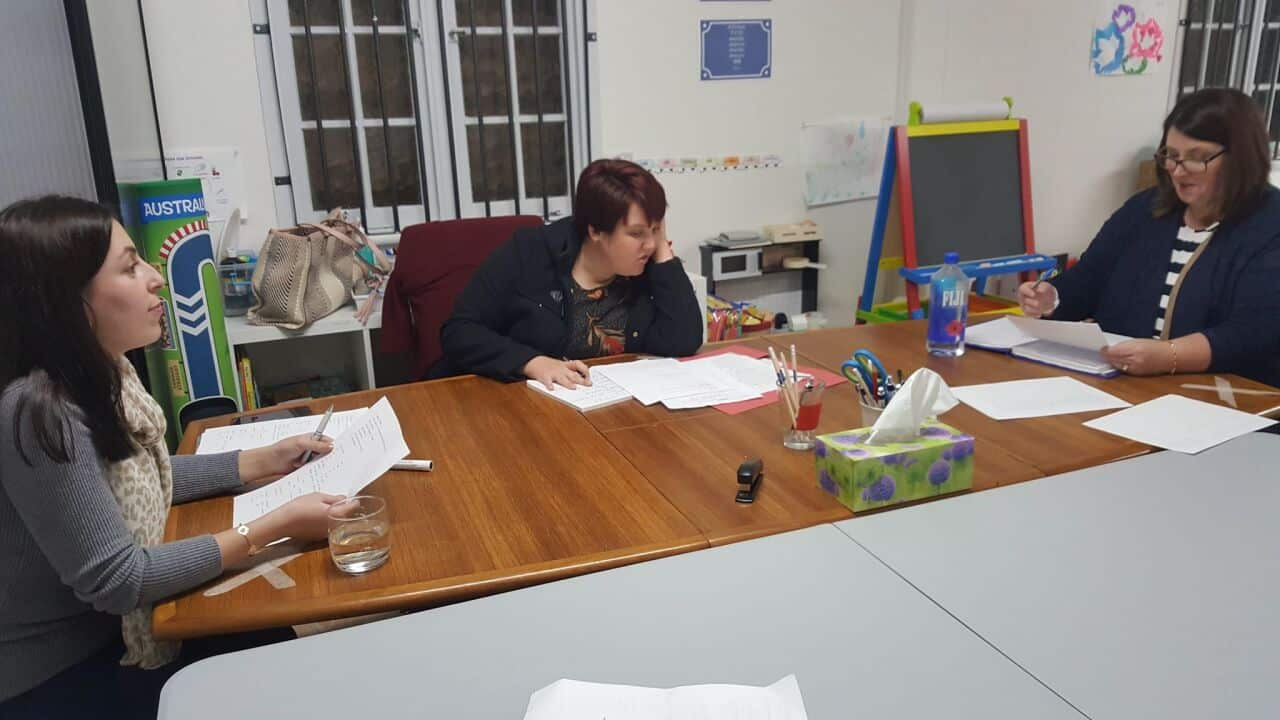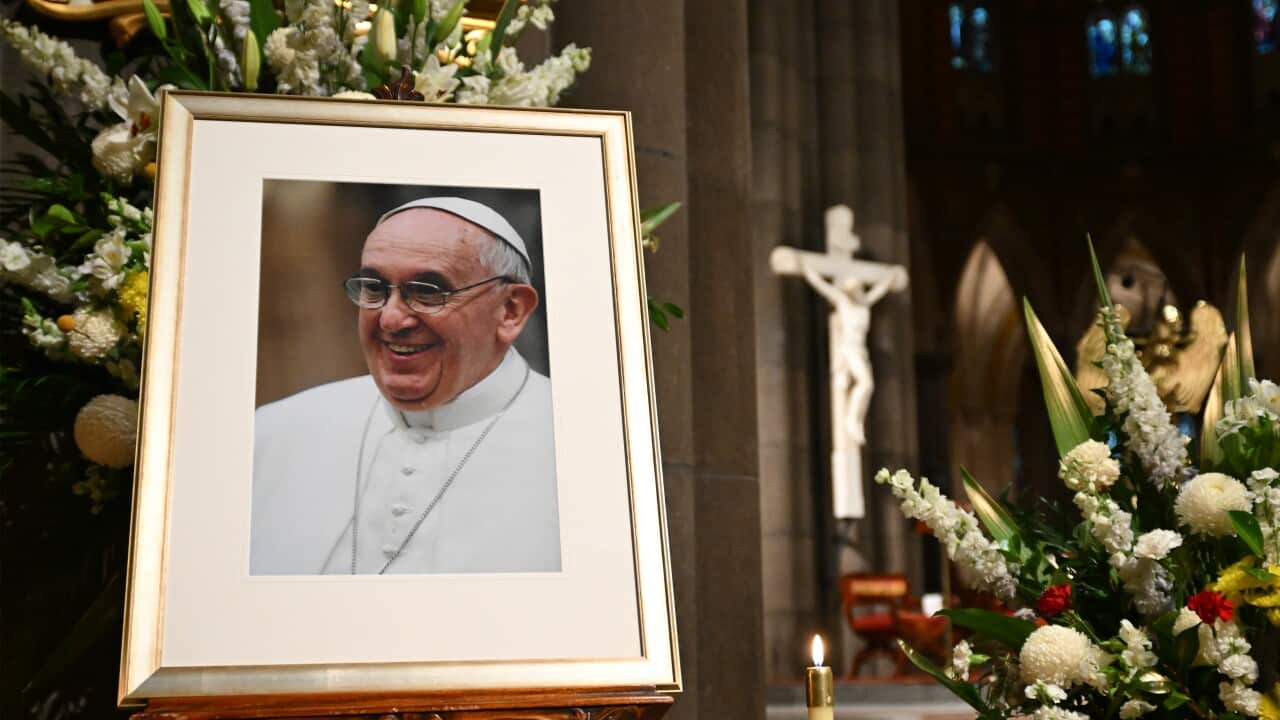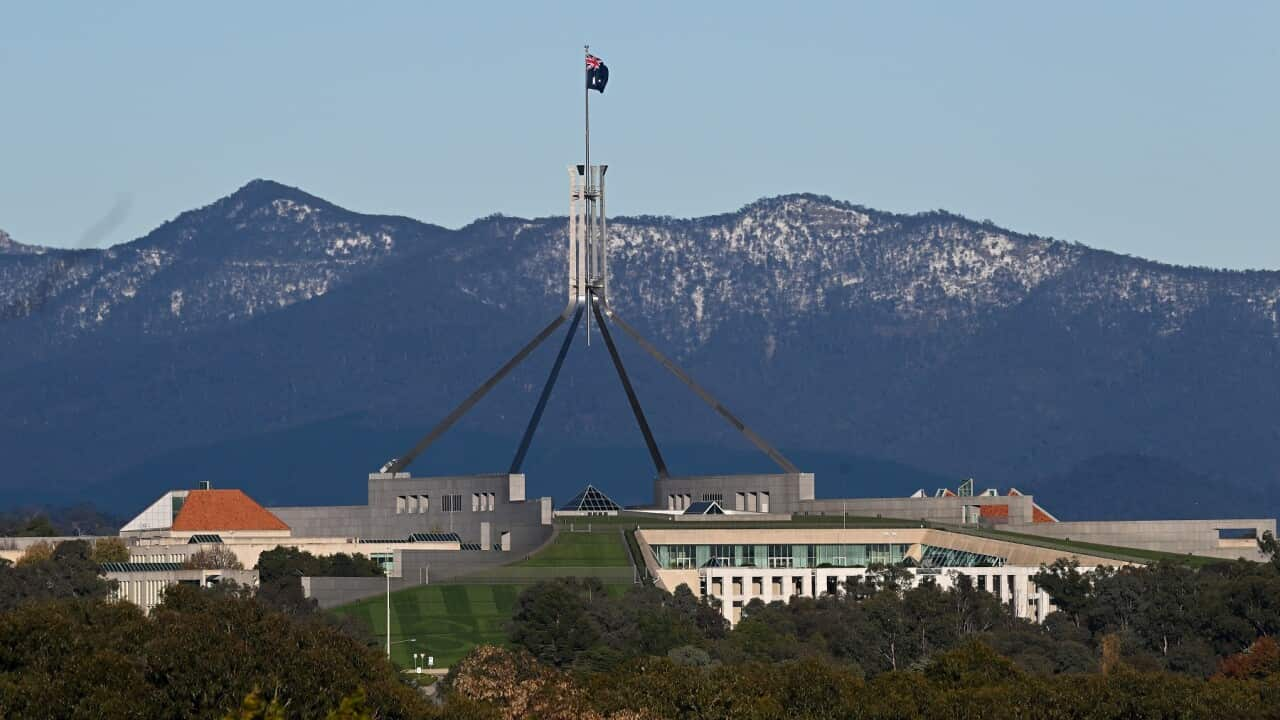In February 2020, refugee Sorgul Maho began teaching the Kurdish dialect of Kurmanji in the city of Toowoomba, west of Brisbane.
Kurdish families, including hundreds from the Yazidi religious minority, were resettled in Toowoomba as refugees of the Syrian war.
“Bonjour Toowoomba is a language centre based in Toowoomba where many languages are taught and Kurdish Kurmanji is one of those languages," she tells SBS Kurdish.
“We started the face-to-face classes a while ago but because of the COVID-19 restrictions and the social distancing between March and April we moved to online classes but before that, we were doing face-to-face classes."
Ms Maho is the centre's only teacher of the dialect and while she doesn't have teaching qualifications, she's a qualified interpreter and translator, who has spent the past two years  She's a Syrian Kurd from the city of Afrin who arrived in Australia with her parents and siblings in July 2018, after spending four years in Turkey.
She's a Syrian Kurd from the city of Afrin who arrived in Australia with her parents and siblings in July 2018, after spending four years in Turkey.

Source: Supplied
Prior to the Syrian war in 2010/2011, she studied English literature at Aleppo University, which added to her list of languages including Kurdish, Arabic and Turkish.
Kurmanji is a dialect of the Kurdish languages, spoken predominantly in northwest and northeast Iran, northern Iraq, northern Syria, southeast Turkey, and the Caucasus region. Ms Maho's aim in teaching Kurmanji is to help people who have direct contact with the refugee community in Toowoomba as well as spreading awareness of the Kurdish language because she says many people mistake it for Arabic or Turkish.
Ms Maho's aim in teaching Kurmanji is to help people who have direct contact with the refugee community in Toowoomba as well as spreading awareness of the Kurdish language because she says many people mistake it for Arabic or Turkish.

Sorgul Maho, far left with students. Source: Supplied by Sorgul Maho
The students who attend her classes are all English speakers wanting to learn Kurmanji.
“It’s only myself, I am the only person who teaches Kurdish here. All the students are from Australia and they are all English speakers. The course that we started in February was a medical professional course. Most of them were doctors, nurses, and medical receptionists and for the current courses, we have teachers so basics basically they are all English speakers from Australia.
“I’m just trying to help people who have direct contact with the refugee community or deal directly with the refugee community, to help them have this communication and on the other hand I just want to make sure that everybody knows that Kurdish is a language. It’s not a part of Turkish language or Arabic language as most people think and it is a written language so we do write and read, we have books published in Kurdish." Ms Maho says she faces “some difficulties” teaching the language.
Ms Maho says she faces “some difficulties” teaching the language.

Source: Supplied
She tends to teach formal Kurdish but when her students mingle with the community, they find that different words or phrases, such as Arabic or Turkish words, are used. For that reason, she teaches her students certain words in Kurdish Arabic or Kurdish Turkish.
“People may already know or not know that Kurdish Kurmanji is a dialect of Kurdish but because it is spoken in different areas or different regions of Kurdistan, that means there are differences between all of these regions, and on the other hand we have Kurdish mixed with Turkish and Arabic,” she says.
“Kurdish wasn’t a formal language in Syria or Iraq or in Turkey. That makes it a little bit difficult because when I teach my students something in Kurdish, I tend to teach in formal Kurdish but when they go to the community or talk to some people from the community, they find different words or different phrases so that means there is a little bit of a difference.
“What I tend to do to solve this problem is I try to give them both forms, for example, If the word is used in Arabic or if the same word is used by the community in Arabic and we have the Kurdish word for it I tried to give them both words.”
Amid the COVID-19 pandemic, she feels there isn't a huge difference between teaching online classes as opposed to face-to-face.
“To be honest I don’t think there’s much difference between the online classes and the face-to-face classes, but recently we went back to the face-to-face classes and we kept one online class because we have a student in Melbourne.”





